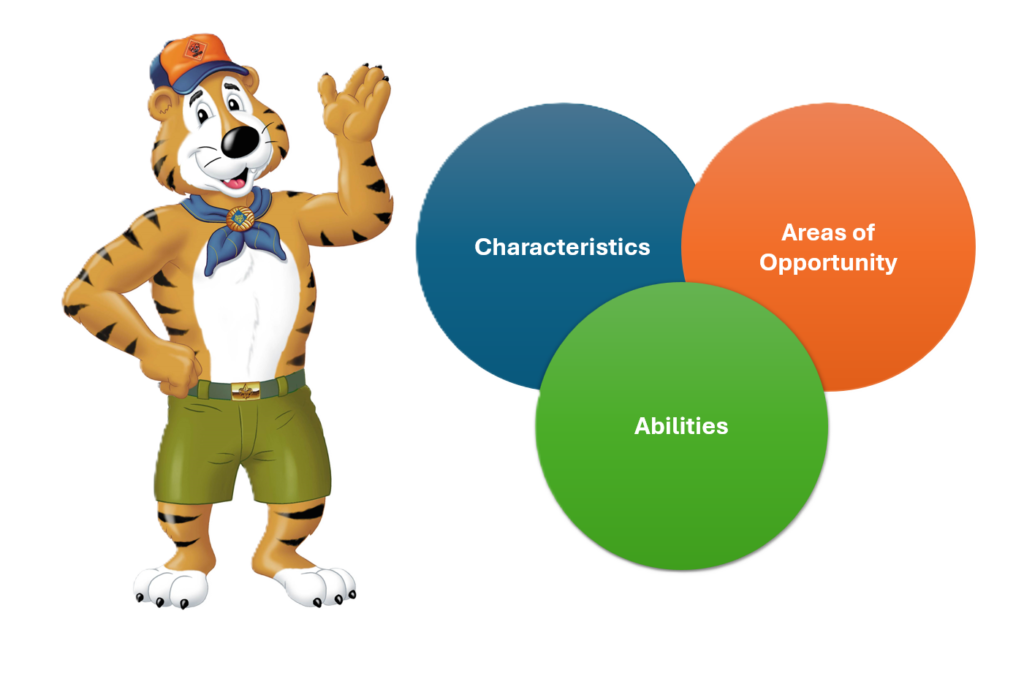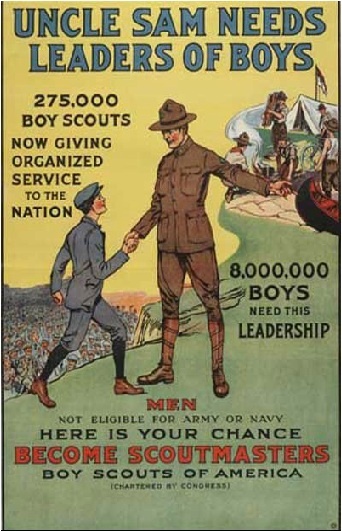Serving Scouts with Special Needs
Credit: Derrick Sarringer from University of Scouting Presentation 2020
Youth who have disabilities want the same personal growth opportunities that any youth does. It is our challenge and opportunity to provide them.
Four Broad Categories of Disability

Learning
Emotional
Physical
Developmental
Issues You May Encounter
- Unhelpful parents
- Overprotective parents and parents who do not disclose a disability
- A disruptive Scout
- A Scout with sensory issues
- Behavior of others toward members with disabilities
- Activities that do not allow participation
Look at the Whole Scout

Strategies to Help Resolve / Prevent Issues
- Have a joining conference for every Scout.
- Ask about the Scout’s strengths.
- Ask about parental concerns or anxieties.
- Encourage parents to become leaders.
- Ask about the Scout’s trigger situations.
- Ask what adaptations work at home.
- Do not ask for the diagnosis.
- If diagnosis is provided, be reassuring. Meet with and regularly communicate with parents.
- Suggest parents may need to attend meetings or outings to assist.
- Communicate respectfully with the Scout.
- Speak directly to the Scout. Be concise & clear.
- Give the Scout your undivided attention. Make sure you have good eye contact and adjust your height as needed.
- Get to know the Scout.
- Encourage the Scout to help create solutions.
- Encourage self-advocacy.
- Do not gossip or complain.
- Praise successes and encourage.
- Ignore minor inappropriate behavior.
- Allow extra time to complete work.
- Develop peer partners/buddies.
- Encourage youth leaders to be patient and caring. Support youth leaders when they are frustrated.
- Encourage peers to be advocates.
Tips for Working with Scouts with Disabilities
- 1.Provide structure and routine.
- Ensure rules & expectations are made clear.
- Allow extra time for processing instructions and completing the activity.
- Give time warnings.
- Have a signal the Scout can use when they need a break.
- Alert parents if you’re going to have an activity that might trigger sensory issues.
- Be prepared and plan ahead.
- Always have a plan B.
- Discuss friendship & social skills with the whole den, pack, patrol or troop.
- Adapt activities as needed.

Things to Consider When Planning Outings

Small Group Event Areas to Address
- Mobility needs
- Program accessibility needs
- Sensory needs
- Personal care needs
- Resources available
Large Group Event Areas to Address
- Transportation needs
- Camping needs
- Program accessibility needs
- Sensory needs
- Personal care needs
- Resources available
Scout Leaders and Adults Should…

- Post daily schedules and duty rosters
- Review daily schedules the night before and morning of camp
- Be flexible
- Share supervision
- Always have a Plan B!
- Allow extra time for activities
Scout’s Responsibilities
- Understand troop rules may be different from parent’s rules
- Advocate for themselves
- Remember the Scout Law

When Conflict Occurs
- As a leader don’t make snap decisions.
- Stay calm.
- Listen to all sides from the Scout’s perspective.
- Help each Scout see the other’s viewpoint.
- Watch out for bullying.
- A cooling off time may be necessary. This is not a punishment for the Scout.
- Encourage the Scout to get a drink of water.
- Encourage deep breathing or counting backwards from 10.
- After the meeting talk with parents about what happened if you were not able to resolve it. Discuss strategies that work for their Scout at home or school.
Considerations to Adaptations
- Use the least amount of change necessary to make the activity successful for everyone.
- Speak with parent or pack leaders to know how best to make adaptations.
Remember! The goal is for the Scout to do their best.

